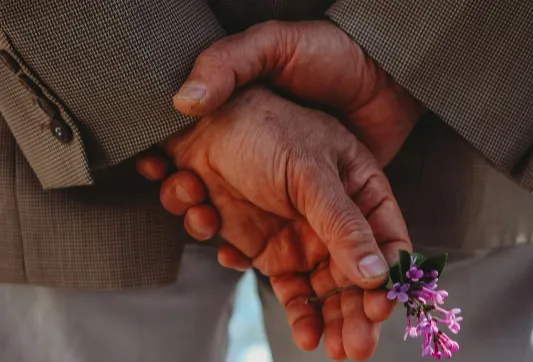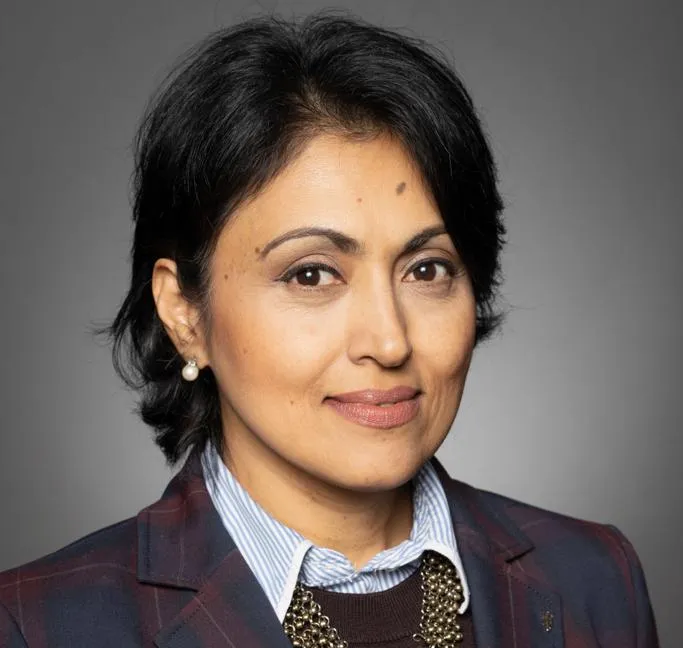Mount Vernon’s joy: a daughter’s witness
Dad's memories

Anand Uncle’s death really hit Dad hard. There was no outward expression of pain. No loud scream to eject the sadness from the body, rather the sadness took hold like a morning fog, writes Arvashni Seeripat.
Image: Fatih Güney/Pexels.com
THE sadness was etched in the air. Softly caressing and touching all around us. It felt like my mom’s softest chiffon sari. Wrapping Dad in its caress, cloaking him, creating its own cocoon of solitude.
Anand Uncle’s death really hit Dad hard. There was no outward expression of pain. No loud scream to eject the sadness from the body, rather the sadness took hold like a morning fog. Gentle, rolling and without fear, without terror or anger. And it set in. Hard. Like a fist around Dad’s heart, rhythmically pumping to jog memories.
I could not understand it. We (as a family) were not close to Anand and his family. We saw them at weddings and gatherings but not that we visited homes frequently. I knew he had children, but I couldn’t tell you their names, how many and frankly where they lived. Somehow, someone with no influence on our lives had a thunderbolt of an influence on my dad, in his death. It was hard to figure out. And because it didn’t make sense, we were tolerant of the sadness at first and became more dismissive as the days passed.
It was time to move on, to get over it. But it didn’t move on. The fog set in, like a fist around Dad’s heart, like a grip around Dad’s mind. The grip lasted for a few weeks rolling into months. Life continued; birthdays, celebrations, and the joyous boredom of everyday life. All the time, the fog lingered, taking space in the back of our collective lives, holding court as we played in the atrium of life. It took months before we realised the sadness had passed and some semblance of Dad’s rhythm was back.
His heartbeat was strong, slightly altered. Something was missing and yet something was building. We knew this was happening and yet I didn’t ask why; because it didn’t make sense at that moment. It felt like overkill and a dramatic response to the death of someone not important in our lives. And life marched on, and I saw the same, but attenuated response to other deaths in our family. The common traits – people Dad knew when they were children, no daily interaction as adults and deep almost paralytic sadness. To know my dad as his child or grandchild means to know his story.
From growing up in Durban, South Africa in Mount Vernon and Belair to moving during apartheid South Africa to Chatsworth. Dad’s life has four distinct eras: carefree (from a baby to age 10), Burden (age 10 until age 24), Build (aged 24 until 65), and Reflect (Now).
These are my names of the eras, reflecting my interpretation of the stories and my lived experience. Dad might see them differently. These eras are of different durations, but the impact of each era is not proportionate to its length. His life sort of feels like one deep inhale (like a gut punch) and then slow exhaling over decades. We listen and lean into the burden era. From the age of 12, he carried the responsibility of a family’s survival on his brown boy’s bony shoulders. This time represents the things lost: childhood, education (he was taken out of school even though he has a scholarship) and joy.
The loss of joy would be the biggest loss that my dad and his family would carry throughout their lives. Their collective story is one of attempt to recapture the joy of being alive. The build era reflects the build of my dad’s confidence and of our nuclear family. Confidence through his self-education, and ambition. Our nuclear family emerged through my parent’s marriage at this time. Joy slowly and tentatively rears its beautiful head when subsistence was not the priority focus and memories were being built through the eyes of children. We are in the reflect era of Dad. More laughing and being silly. Still very stoic, very correct, yet, giving into the joy that comes with a slow exhale. Enjoying the moments that build memories for others.
The only time of Dad’s life that represents joy as a noun where he is not losing and trying to recapture it, is Dad’s carefree days. His childhood, as he shares it, was one of a joint family system. A place in the history of his family where he shared adventures, played games, and laughed with his whole being - the last time he did until his reflect years. Where foundations were laid for who he was to become. When siblings, cousins and friends with typical childlike roughness, compassion, cruelty and love, collectively shaped each other.
Where my father created his perfumed memories of joy, and why his devastation was so complete when Anand died. Anand was Dad’s childhood playmate in Mount Vernon. The grief of Anand’s death was for the man himself and for what he represented in my dad’s life. The joy that he never experienced again for years. Anand and others share the memory of that joy with my dad. If the people who he built those memories with are no longer around, does that mean the moments of the joy that he experienced don’t exist?
These memories will always stay with Dad, but if the person that you built it with, no longer walks on this ground to share it with you, how does the experience of it change? And for Dad, he was asking for witness to a time when he was joyful. And Anand represented that time. The fog had a name, loneliness. Loneliness that sets in when your formative companions no longer walk the earth to share your childhood memories and share the carefree you.
As the fog slowly lifted, Dad’s rhythm came back, altered and different. I knew deeply within me, my beautiful, strong, stoic father was asking us all to bear witness to a time when he was joyful. If losing childhood companions represents a loneliness that none of us can know, could we bear witness to his joy through listening to his stories?

Arvashni Seeripat
Image: Supplied
Arvashni Seeripat is a kindness advocate, award-winning author, global healthcare executive and a board member. Seeripat, who was born in Chatsworth, is currently the president of Averitas Pharma, based in New Jersey, USA , where she resides with her husband, Pravir, sons, Armahn and Aryan, and their fur baby, Casey.